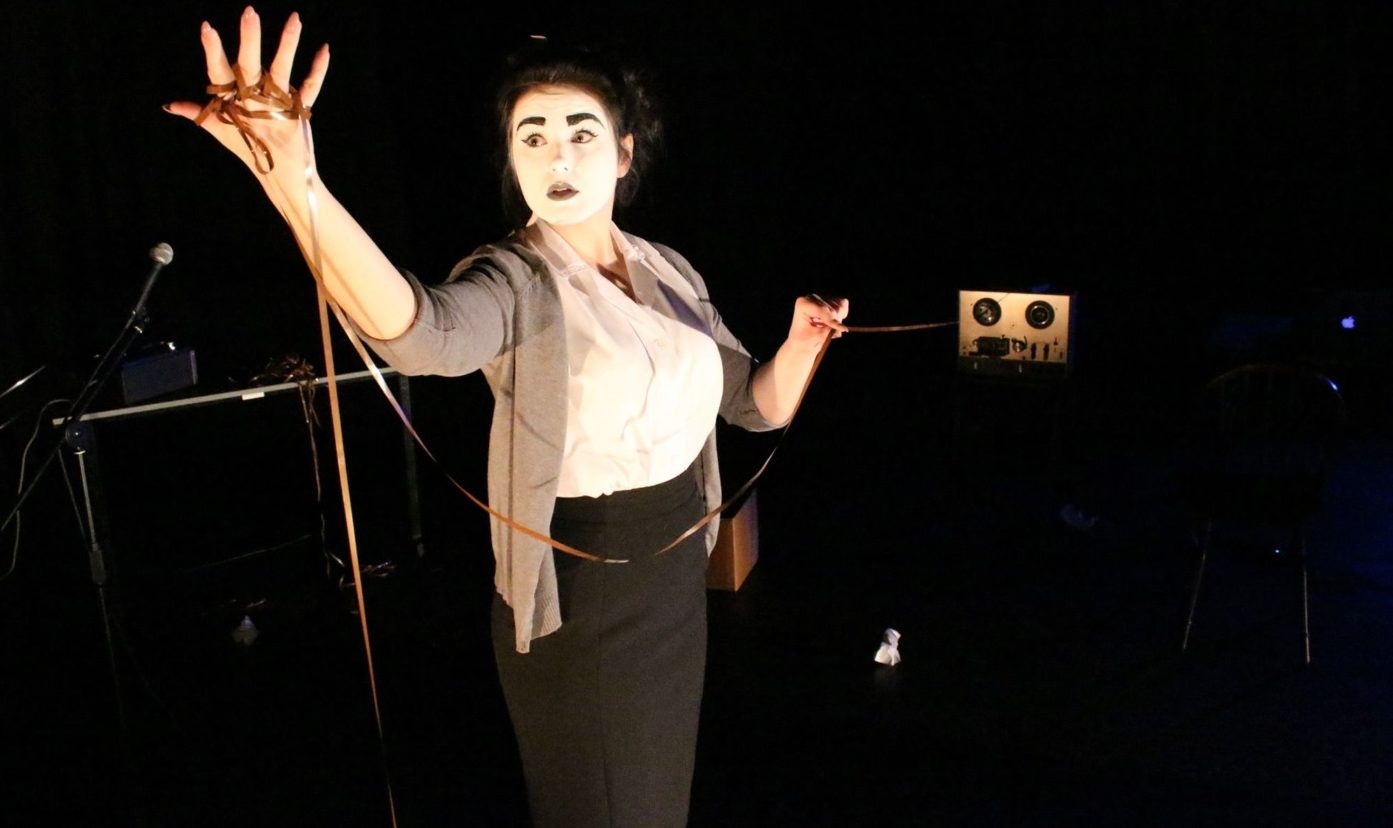“A playground of soundscapes”: Hymns for Robots review
Hymns for Robots doesn’t really feel like a play. There is no real sense of beginning and end. Without sounding too pretentious (something the play also tries to avoid), it is more of a series of sketches about Delia Derbyshire’s life while at the same time creating a playground of soundscapes. If the past three sentences haven’t given away that it’s a transfer from the Edinburgh Fringe, I suggest booking a ticket for Scotland next August.
The show tells the story of Delia Derbyshire, a composer – though that title was withheld from her for most of her career – who joined the new BBC Radiophonic Workshop in 1960. An early scene depicts her interview for the post, helping the audience – most of whom will probably, like me, never have heard of the Workshop – to understand how unusual and disregarded such a post was at the time. One of the show’s greatest assets is that it explores a piece of musical history which many of us will never have thought about despite having grown up with it: the introduction of electronic music.
One of the show’s greatest assets is that it explores a piece of musical history which many of us will never have thought about
The company behind Hymns for Robots is Noctium, a Coventry-based company formed by Coventry University graduates. It is a local company returning home to the Belgrade with their Fringe show. The subject is local, too. Delia Derbyshire, despite her Queen’s English, was “born, bred and blitzed” in Coventry. This is the story of a local hero and a woman who broke boundaries in music, but faltered because of a close-minded establishment. It’s an important story to tell and, fittingly, it’s told in a way that is also breaking boundaries in the use of sound in storytelling.
The show is really entertaining. Its 70-minute runtime never drags or feels long even if the non-linearity creates the challenge of a lack of forward momentum. Its opening, in which a man in a vest (Charles Craggs) walks up to the microphone and speaks but a woman’s voice comes out, immediately puts the audience at ease and introduces us to a world that is quietly comic and interested in how sound works. The abstract projection and recorded speech that follows introduces the conceptuality of the show, in a way that flirts with pretentiousness; it explains that the main character and Delia Derbyshire have a lot in common but are not the same.
The abstract projection and recorded speech that follows introduces the conceptuality of the show
The show falters when the company gets stuck on theatrical theory rather than on what would make the best show. The same can be said, unfortunately, for Jessie Coller’s performance as Delia. Painted in a white face and dark make-up like a French mime, she speaks with a faux 60s Queen’s English like in an old commercial. The broadness of the accent coupled with the unceasing cheerfulness of the character gives Delia a grating quality after a while. Her over-the-top-ness contrasts beautifully with the quiet realism of Hodgson (her near-one-woman show is interrupted by his dour interjections). However, it feels like the company is reaching for unnecessary theatricality in Delia’s characterisation, since it already exists in the use of set and audio.
The set is quite abstract, the brick back of Belgrade’s B2 studio exposed with a projection of soundwaves on it. The floor is covered by rolls of tape from audio cassettes. On one side, two soundboards are set up behind screens showing the soundwaves. It is here that Craggs resides. It is superbly fitting that a show that centres so much on the manipulation of sound puts this process on stage. There is constant abstract sound throughout, as well as instances of looped dialogue. The set merges into this – a pull by Coller on the audio tape is perfectly synchronised with a change in the sound. It works to create a unique theatre experience as well as effective storytelling in conveying Delia Derbyshire’s contribution to music.
The show is sold as being about “the unsung genius behind the Doctor Who theme tune”. In reality, the Doctor Who theme song is mentioned very briefly. It is really not about its inception, but the odd collision between a piece of popular culture that is still more popular than ever today and Delia’s story of breaking artistic barriers and glass ceilings at the BBC in the 1960s. While any die-hard Whovians might be disappointed for a moment, the untold story of Derbyshire should definitely make up for it.

Comments